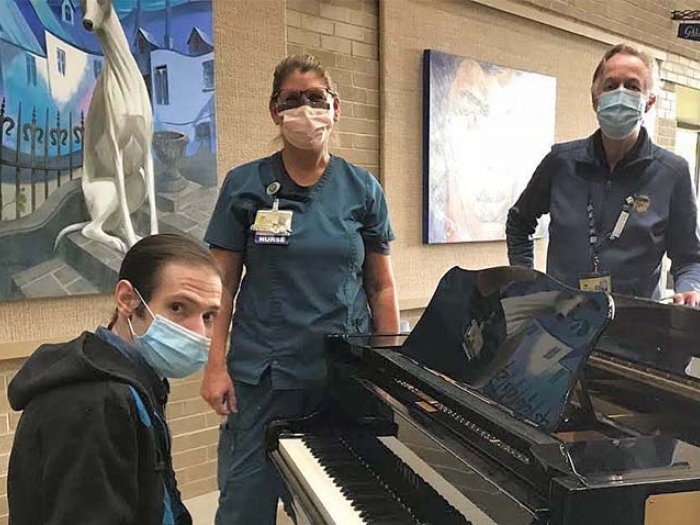A Michigan Medicine pulmonologist explains why biologics are becoming a valuable option for some asthma patients.
7:00 AM
Author |

The number of Americans with asthma continues to rise. One in 12 people — or about 25 million — experience asthma symptoms, federal data show.
Maintaining a good quality of life can be tough.
"Asthma symptoms, such as difficulty breathing, tightness in the chest and wheezing, present a constant struggle that patients with moderate to severe persistent asthma experience every day of their lives," says Njira Lugogo, M.D., associate professor of pulmonology and director of the Michigan Medicine Asthma Program.
LISTEN UP: Add the new Michigan Medicine News Break to your Alexa-enabled device, or subscribe to our daily audio updates on iTunes, Google Play and Stitcher.
And some treatments, including steroids, come with noticeable risks.
One newer option Lugogo recommends to some patients with severe asthma: biologics.
"Biologics are pharmaceutical drugs made from living organisms that are produced using cutting-edge biotechnological methods," Lugogo explains. "These drugs are able to more precisely target pathways causing inflammation in the lungs of patients with severe asthma.
"In the past, we tended to treat patients with severe asthma with high doses of inhaled or oral corticosteroids. While these drugs helped many patients, those with severe disease remained uncontrolled despite treatment. Biologics are giving us new options for patients that had few good options in the past."
Lugogo is also heavily involved in research studies focused on new treatment options for patients with severe disease.
Here, she highlights what patients need to know.
How biologics work
Biologics target the proteins and receptors in the body that cause inflammation and exacerbations, both of which cause asthma attacks, and helps reduce them.
MORE FROM MICHIGAN: Subscribe to our weekly newsletter
"The biologic therapy blocks and targets cells and pathways in the body, depending on the type of asthma you have — allergic or eosinophilic," Lugogo says.
For patients experiencing allergic inflammation, the anti-IgE biologic (Xolair) targets free IgE in the body. For patients with eosinophilic asthma, the anti-interleukin-5 biologic targets the IL-5 protein (Nucala and Cinqair) and the IL-5 receptor (Fasenra) and depletes the body's eosinophils, a form of white blood cells.
Who may benefit from biologics
Patients with poorly controlled asthma that is not responding to standard treatments — especially people on a daily oral steroid such as prednisone or Medrol — should be considered, Lugogo says.
"The patients that are most likely to experience the best results are those on high-dose inhaled or oral corticosteroids with a high IgE or blood eosinophils and asthma that remains poorly controlled," she explains, noting that biologics can be a safer option for some.
"Using oral steroids for long-term care can cause a number of side effects for patients, including glaucoma, heart conditions, weight gain, diabetes and osteoporosis."
Biologic dosing and risks
Because biologic treatments for asthma are injections, patients don't have to remember to take a daily oral medication. Depending on a patient's treatment plan and the type of biologic he or she receives, doses could occur once every two to eight weeks.
SEE ALSO: How Chronic Snoring Can Cause Heart Disease
Says Lugogo: "Treatment is administered at our clinic, and patients don't have to worry about filling prescriptions and remembering to take them daily."
Still, patients should talk with their doctor about what treatment is best for them.
"Like any medication, there can be side effects," Lugogo explains. "Most common side effects include injection site pain or irritation, sore throat or headaches. Severe allergic or hypersensitivity reactions are rare but can occur, therefore patients are monitored at the clinic following administration of these medications."
To learn more about the Michigan Medicine Asthma Program and make an appointment, call 888-287-1084 or visit the program website.
Lugogo is a consultant for pharmaceutical companies GlaxoSmithKline, Teva and AstraZeneca, which develop treatments for asthma.

Explore a variety of health care news & stories by visiting the Health Lab home page for more articles.

Department of Communication at Michigan Medicine
Want top health & research news weekly? Sign up for Health Lab’s newsletters today!





